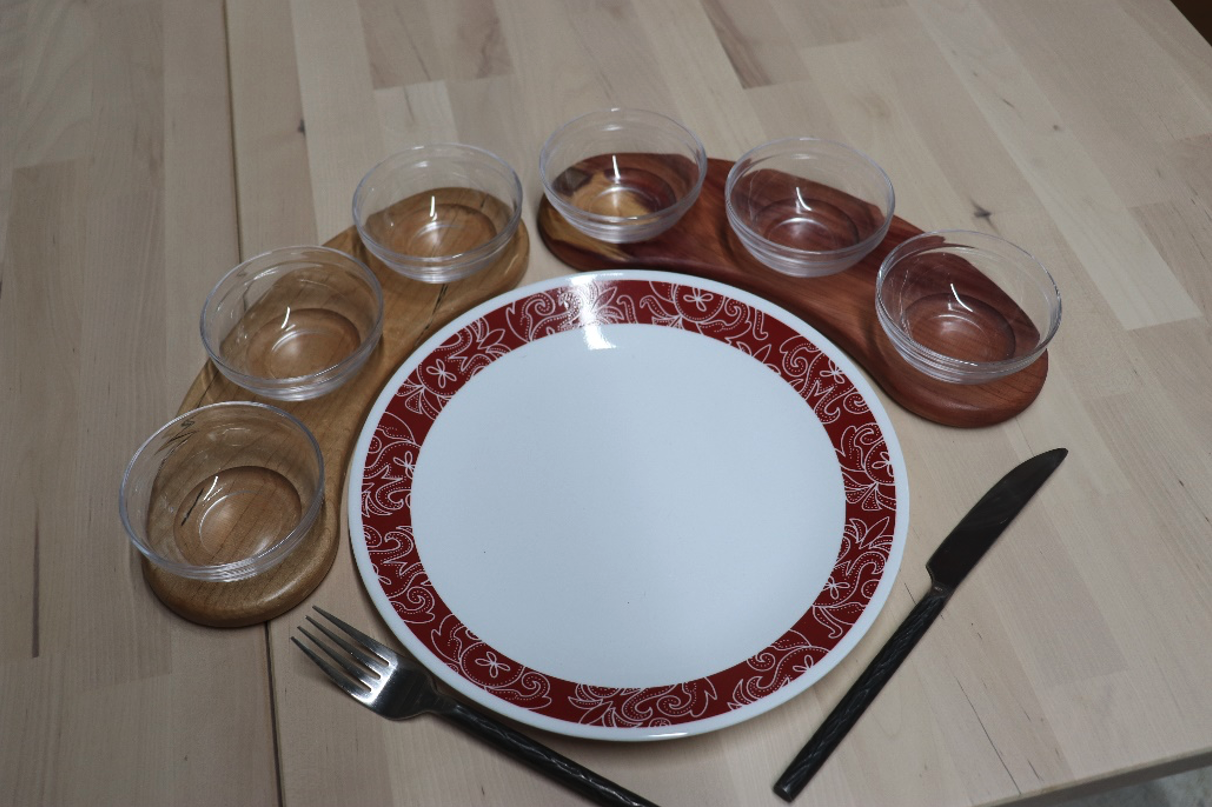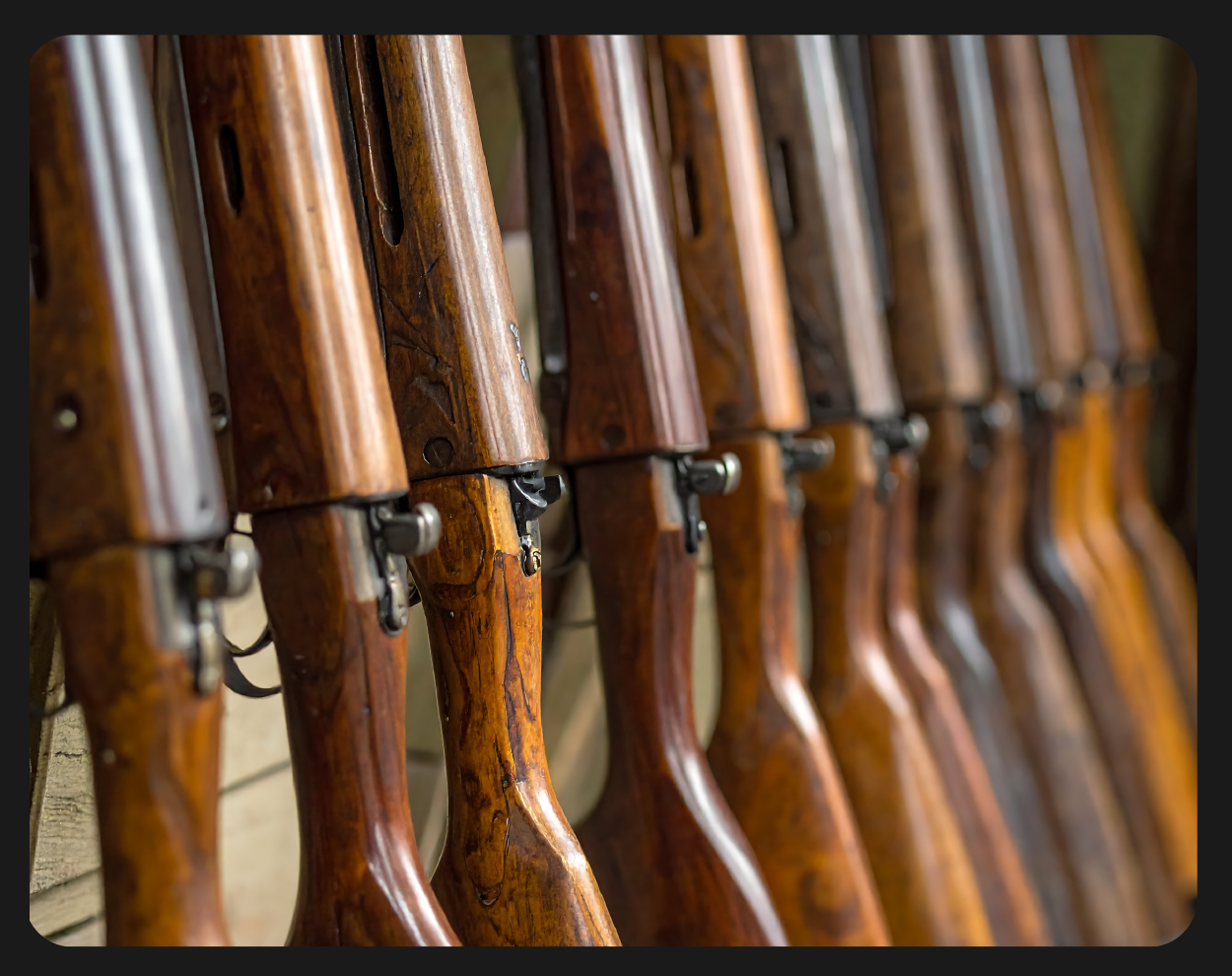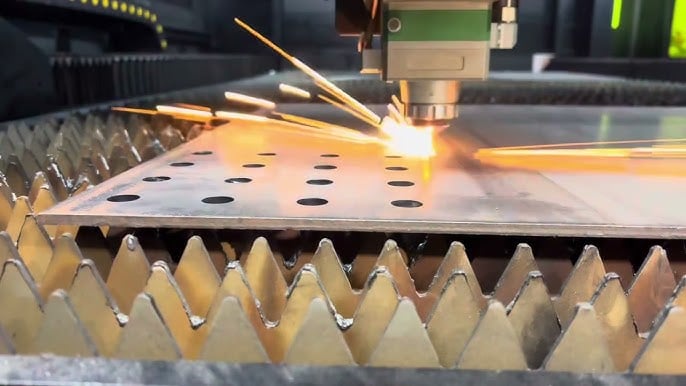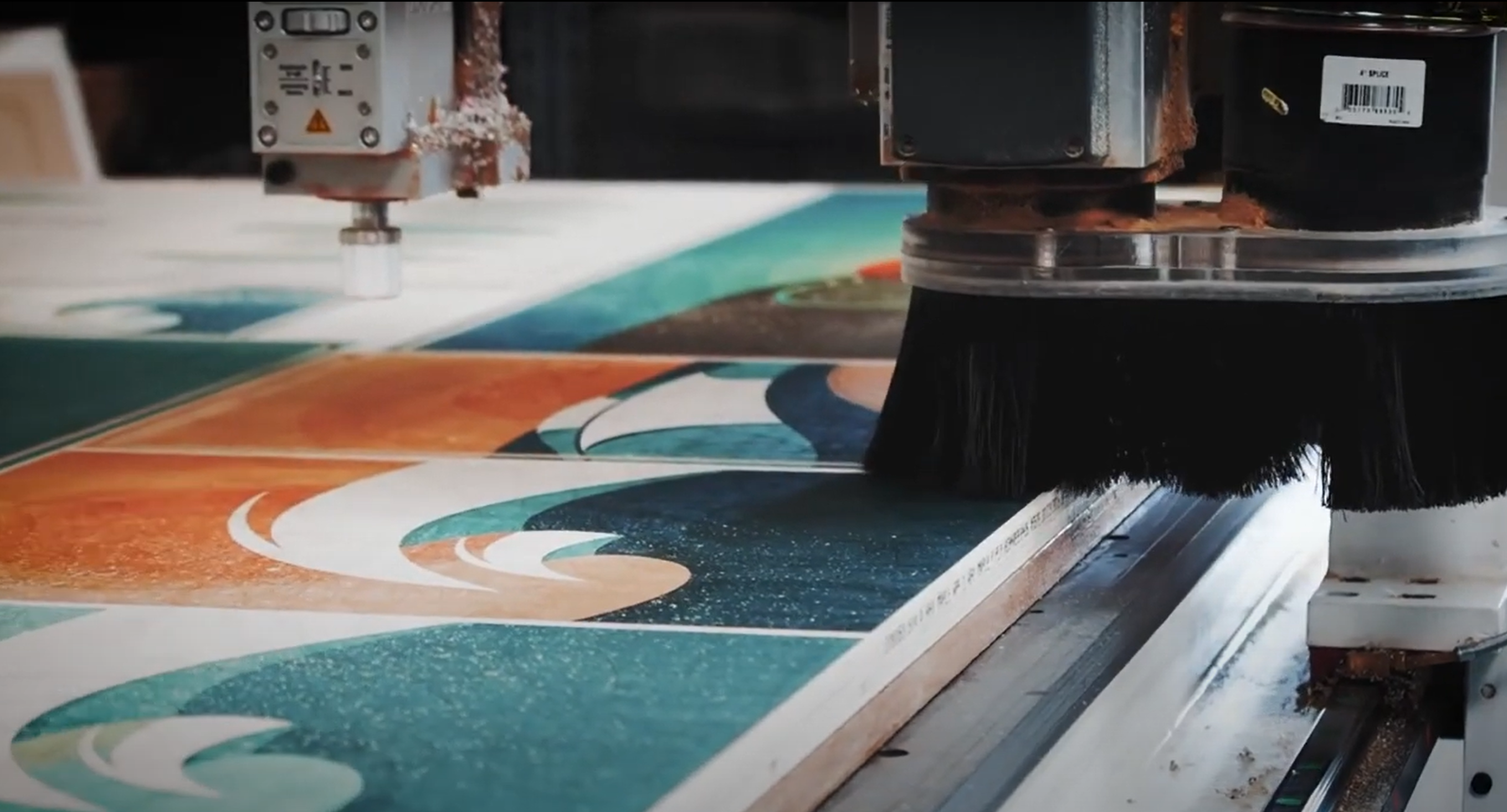Fondue is a favorite in my house, which means serving a variety of meats, vegetables and sauces. These custom bowl trays add a very nice touch to the dinner, providing a place for everyone to have their own meat and sauce choices. If fondue isn’t your thing the bowls are also great for dip or other small items you’re serving. And, creating the curvy tray in VCarve Pro is a great design exercise. The trays are made to nest around the dinner plate, matching its diameter.
The bowls

I found these bowls on Amazon as a 24 bowl set. They’re 3-1/2” diameter, and a perfect size for this application. You can also get them as a 12 bowl set or 18 bowl set.
Get some measurements

Before starting on the design grab some measurements. You need to know the diameter of your dinner plates and the diameter of the rim of the bowl. You also need to know the diameter of the bowl about 1/4” up from the bottom. It’s easiest to get this measurement with digital calipers.
Create the design
Even if you don’t plan on making a tray, this project is a great way to learn about using VCarve Pro for curved designs, and a great exercise in letting the software, instead of your brain, do the heavy lifting on getting the design right.

Create a new file with a 24” x 24” Job Size. This dimension isn’t critical. We just need a workspace at this point in which there’s enough space to lay out the project. XY should be at the center of the job, not a corner.

Use Draw Circle to place your dinner plate on the job using the diameter of your plate and placing its center at the XY zeros.

Use Draw Rectangle to create a 16” x 10” rectangle, centered on the job. This rectangle represents the piece of wood you’ll cut the tray from and is currently way oversized. Again, we just need a workspace in which to start the design.

Your workspace now looks like this.

Select the rectangle and use the up-arrow key on your keyboard to move it up so its bottom edge is on the center of the circle. The position of the rectangle doesn’t need to be perfect, just close. Don’t move the rectangle left or right, only up.

Use Draw Circle to place a bowl on your design. The diameter used here should be diameter of the bowl rim….

…and your drawing will look like this. Select the bowl circle and the plate circle, in that order.


Use Align Bottom to Top to move the bowl to the top of the dinner plate.


Select the bowl circle and use Circular Copy to create the circular array of three bowls on the tray. Use negative 65-degrees to place one of the circles to the left and positive 65-degrees to place the other circle to the right. Make certain the Rotation Center is 0,0. This keeps the new bowl circles on the dinner plate circle.

Your design now looks like this.

With the three bowl circles selected use Move Selection to move the bowls away from the dinner plate 1/2". It’s important to have Relative selected and move the circles only in a positive Y direction.
Create the tray’s outer edge

Click on the Measure tool.

Measure from the top of the dinner plate to the top of the bowl. Add this number plus 1/2" to the radius of the dinner plate circle….

…and use the Draw Circle tool to create a new circle.

We now have the inner and outer edges of the tray defined, along with the bowl locations.
Round off the tray ends

Use Draw Circle and create a circle whose diameter matches the radius difference between the large circle and the dinner plate circle.

Select the new circle and the dinner plate circle, in that order, and use Align Bottom to Top, as we did previously, to move the new circle to the top of the dinner plate.

Select the 4-1/2” circle and use Circular Copy with the Rotation Center at 0,0 to place new circles at negative 60-degrees and positive 60-degrees.

Now we’re ready to create the final shape of the tray, and it will perfectly match the circumference of the dinner plate.
Refine the tray

Select the Interactive Trim tool.

Use the scissors to start cutting away exterior lines you don’t need in the final tray. Don’t remove the bowl circles. Remember that if you accidentally cut a line that you don’t mean to you can use Control Z on the keyboard or Edit Undo to reverse your last action.

Snip away lines until the tray looks like this.
Bowl recesses

Use the Draw Circle tool to create a circle whose diameter matches the measurement you took from the bottom of the bowl.

Center the recess circles in the bowl circles using the Center Objects tool. Remember that you need to select the object in the correct order for this to work right. Select the base circle first, then the bowl circle, then click Center Objects.

Your design should now look like this. Delete any remaining extraneous lines.
Toolpaths

Use the 2D Profile Toolpath to cut the outside shape of the tray.

Use the Pocket Toolpath with a 1/2" ball nose and 1/4" depth of cut to create the bowl recesses.

Use Preview Toolpaths to check your design.
Make your trays

Grab some of those special pieces you’ve been holding on to for just the right project. I planed my stock to 5/8” thick for the trays. This pile includes Spanish cedar, zebrawood, spalted maple and flame birch. I’m making a bunch of trays, because I know friends will want them, too.

Install the ball cutter, zero the X, Y and Z axes, and run the pocket toolpath.

Swap to the endmill and run the profile toolpath.

Round over the top and bottom edges of the trays with a 1/4" roundover bit, sand and finish. You’re ready for dinner!




